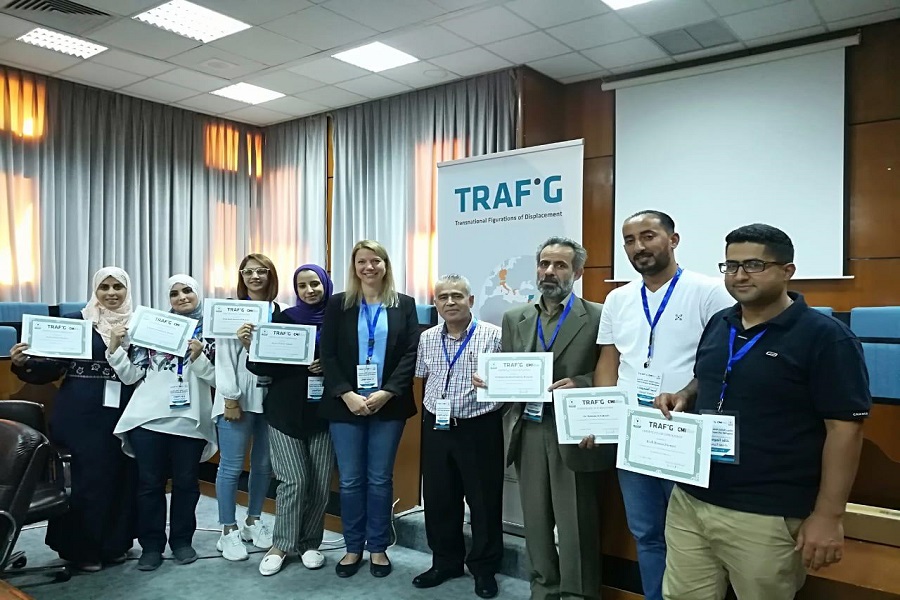
28 June 2021, Irbid-Jordan, Yarmouk University
Over one million Syrians have been displaced in Jordan for the last ten years. According to new research, many Syrian refugees in Jordan do not yet see themselves returning to Syria within the next two years. Even though the crisis in Syria continues, international support for Syrian refugees in Jordan has already begun to decline.
This situation was the focus of a recent online workshop 28 June organised by Yarmouk University. Field research on the situation of Syrian refugees in Jordan was conducted by the Chr. Michelsen Institute (CMI) in Norway and Yarmouk University. as part of the EU funded TRAFIG project (Transnational Figurations of Displacement) project led by BICC (Germany). The TRAFIG project aims to develop alternative solutions to protracted displacement that are tailored to the needs and capacities of displaced people. It examines how local and transnational connectivity, in addition to mobility, can benefit refugees in their everyday life.
The online workshop was attended by 20 stakeholders from among NGOs, civil society and academia and was led by Dr. Fawwaz Al-Momani, director of the project at Yarmouk University.. According to Al-Momani, “besides further exploring how transnational networks can help resolve protracted displacement, there is also a need to discuss the scenarios of voluntary return” for Syrian refugees given the decline of international support and the lack of other durable solutions.
In order to learn more about TRAFIG research in Jordan, please visit TRAFIG Working Paper No. 6 "Figurations of Displacement in and beyond Jordan" and the corresponding TRAFIG Practice Note No. 6 "Out-of-camp but not out of mind: Supporting Syrian refugees in Jordan’s cities", or the TRAFIG project.



